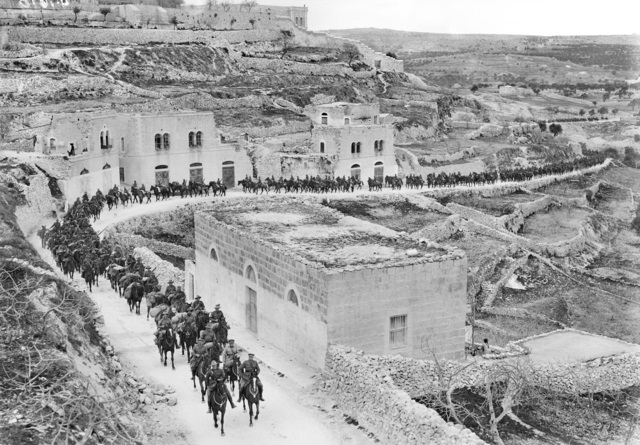
A key challenge facing President-elect Joe Biden will be whether the United States should rejoin the Joint Comprehensive Plan of Action, which was intended to persuade Iran to abandon its plans to develop nuclear weapons.
The Obama administration played a role in the nuclear deal, but critics say it failed to take account of Iran’s missile program, its unchecked rogue behaviour in the region and its state sponsorship of terrorism.
The issue was canvassed in detail when delegations from Australia and Israel met online in November for the sixth annual Be’er Sheva Dialogue. The series of webinars was designed to develop a greater appreciation of how Australia and Israel can work together on areas of common strategic interest.
Named after the site of the Battle of Beersheba, the
dialogue is a partnership between ASPI, the Institute for Counter-Terrorism at Herzliya and the Begin-Sadat Center for Strategic Studies, bringing together officials, parliamentarians and analysts from both nations.
There was a strong feeling at this year’s dialogue that, while Biden has considered rejoining the JCPOA, he no doubt realises that it may not be an option given the changed circumstances of the Middle East, and the US will need to renegotiate an upgraded and improved agreement with Iran.
Some delegates argued that Biden represented a return to a more predictable management of global affairs that would see the US re-emerge as a global leader.
Australia’s defence minister, Linda Reynolds,
noted that given how the pandemic has intensified strategic competition, this year’s session was perhaps the most important to date. Both nations, she said, must prepare for a post-Covid-19 world that’s poorer, more dangerous and more disorderly. She noted the growing prevalence of grey-zone conflict and coercion and highlighted the importance of Australia’s cooperation with Israel, bilaterally and multilaterally.
Israel’s defence minister, Benny Gantz, the former Israeli Defence Force chief who’s intended to become Israel’s prime minister next November,
emphasised major shifts in both the Middle East and the Indo-Pacific. He said countries that had previously refused to recognise Israel are now publicly embracing peace.
The advantages of moderation, Gantz said, are becoming clearer to countries through the Muslim and Arab worlds, the Gulf and beyond. But he said this emerging alliance of moderates also faces forces determined to undermine stability. He urged like-minded countries who valued democracy and peace to unite to create a broad and cohesive front and predicted that Israel’s ties with Australia would only grow stronger.
Another key focus of the talks was China, with a view that Beijing’s goals in the Middle East were energy security and gaining strategic leverage over other countries. That involved a recognition by China that it was not at this stage a major power in that region and it was pursuing a soft balancing strategy, making the US expend more resources than it would otherwise have to. Beijing is also trying to connect economies in the Middle East to China through strategic investments in infrastructure and technology, linking economic ties to strategic and political objectives.
Israeli delegates argued that their country is not yet dependent on China and that the relationship offers valuable economic benefits. But Australian speakers warned that Israel should be wary as China develops relationships with different Middle Eastern countries.
Both sides agreed that strong democracies sharing a unified approach to the China challenge was the most productive way to reduce Beijing’s coercive use of power against individual states.
Australian participants suggested that Israel should think more about its strategic links with Beijing and their implications in the medium and longer terms.
On terrorism, the Israeli delegation stated that the top threat stems from the Iranian–Shiite axis that begins on Iranian territory, is created and funded by the Iranian regime, stretches out across the region and creates armed proxies. There are, they said, Iranian-backed militias in Iraq, Syria and Bahrain, the Houthis in Yemen, as well as the Palestinian Islamic Jihad and Hezbollah.
These groups control territories and feature military hierarchies coupled with guerrilla tactics and terrorist operations. Several Israeli speakers noted that it was important to address Iran’s nuclear, precision-missile and cyber programs, as well as its malign activities in the region. They said Australia should consider whether it is focused enough on Iran and its network across the region. They want Australia to expand its proscription of Hezbollah as a terrorist organisation from just the military wing to include the whole organisation.
On cybersecurity, Israeli speakers described major cyberattacks on their nation’s defence-related entities and critical infrastructure. The most significant was on the water supply system and, if it had succeeded, it could have caused serious loss of life.
It appears that to deter those behind this aggressive cyber campaign, Israel
attacked the control centre of Shahid Rajaee Port in Iran. Delegates called for greater cooperation to stop cyber threats.
In the Middle East, and arising from the Abraham Accords, delegates saw potential for trilateral cooperation between Australia, Israel and the United Arab Emirates in the fields of defence, defence industry, cybersecurity, tourism and agriculture.
It was suggested that a hotline be set up between the defence organisations of Australia and Israel to help jointly develop defensive and offensive capabilities for cyber, to exchange knowledge in force building and concepts, to undertake joint efforts to combat grey-zone activities and to develop cooperation between military colleges.
Other suggestions were a joint committee for defence innovation, joint projects in space and artificial intelligence, and sharing crisis management lessons, based on Australia’s experience with natural disaster response and Israel’s experience with mass casualty events.
 Print This Post
Print This Post